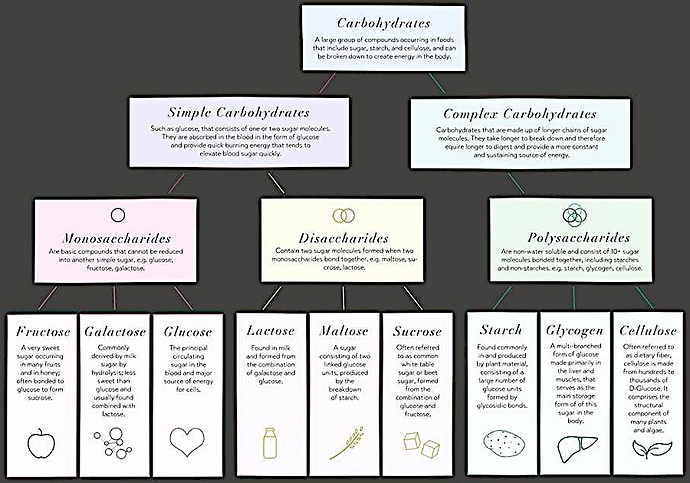I was eating a cottage cheese with fruit bits and the nutrition showed:
8 GMS total carbs
5 gms sugars.
I thought that I could calculate net carbs as
8 - 2.5 = 5.5 (total carbs less 1/2 the sugars), but apparently not.
When I scanned the bar code into my carb tracking program (Carb Manager), it showed 8 net carbs.
The only odd thing I noticed about the ingredients was the listing of “Sugars” instead of “sugar alcohol”.
So, wassup and thanks.

